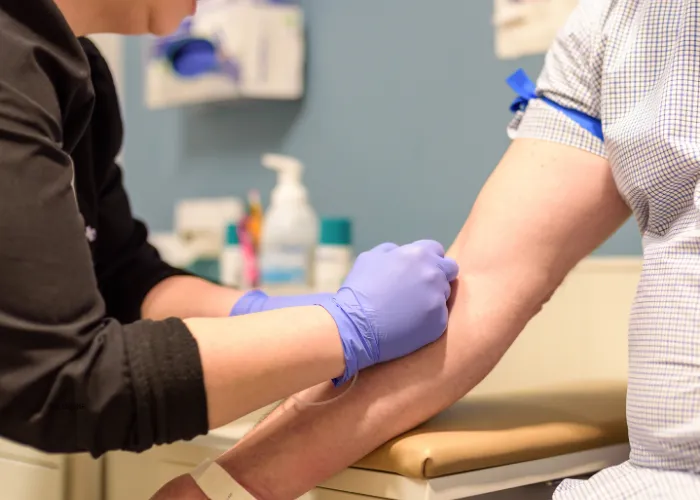
The Labs Every Man Should Be Getting After 30 (But Most Aren’t)
The Labs Every Man Should Be Getting After 30 (But Most Aren’t)
Let’s talk about something that gets dismissed far too often: when men start feeling “off,” but their labs come back “normal.”
Energy dips. Muscle feels harder to build. Belly fat creeps in, sleep feels lighter, and motivation just isn’t what it used to be. Libido shifts. Focus gets foggy. It’s not always dramatic—but it’s noticeable. And when men finally mention it to their provider, they’re often told it’s just part of getting older… or worse, that everything looks fine.
Here’s the reality: standard labs are built to catch disease, not early dysfunction. And those “normal ranges”? They’re based on population averages, not what’s optimal for performance, clarity, and longevity.
If you’re someone who wants to feel sharp and resilient—not just survive the decade but thrive in it—this is where deeper lab testing can make all the difference.
One of the first places to look is testosterone. It’s easy to reduce this hormone to sex drive or muscle, but its reach is much broader. Testosterone plays a central role in energy, focus, fat metabolism, mood regulation, red blood cell production, and even cardiovascular health. Testing total testosterone alone often misses the mark. What really matters is how much free testosterone is available—because that’s what your body can actually use. Free T can be suppressed by things like stress, insulin resistance, liver function, or elevated SHBG, which is why a comprehensive view matters.
Metabolic health is another area where standard testing often falls short. Fasting glucose might appear normal, but early insulin resistance can start years before blood sugar officially spikes. A combination of fasting insulin, hemoglobin A1c, and glucose gives a much clearer view of how efficiently the body is managing fuel. Even modest elevations can contribute to fatigue, brain fog, fat storage—particularly around the midsection—and hormonal disruption.
The thyroid often flies under the radar, especially in men. Symptoms like low energy, stubborn weight gain, or even mood shifts can stem from suboptimal thyroid function. But if only TSH is checked, these issues can go undetected. A full thyroid panel includes Free T3, Free T4, and Reverse T3—giving insight into how well your body is producing, converting, and utilizing thyroid hormones. These numbers can shift with stress, inflammation, and nutrient status, and small imbalances can have a big impact on daily function.
Then there’s inflammation—the silent driver behind so many modern symptoms. Markers like high-sensitivity CRP and homocysteine can pick up low-grade inflammation that isn’t obvious yet, but quietly increases the risk of joint pain, cardiovascular issues, and cognitive changes. These labs help flag stress under the surface, long before symptoms become chronic.
Micronutrient levels are just as important, even if your diet is clean. Vitamin D, for example, supports testosterone production, immune resilience, and mood regulation. B12, magnesium, and zinc are essential for energy, sleep, hormone balance, and recovery—especially in active men or those under chronic stress. Ferritin (iron storage) gives insight into both fatigue and inflammation, depending on whether it’s too low or too high. It’s easy to assume you’re getting enough, but the demands of modern life, medications, absorption issues, and alcohol use can all deplete reserves.
Finally, if there’s a personal or family history of heart disease—or if markers like insulin or inflammation are elevated—it’s often worth looking beyond a basic cholesterol test. Advanced lipid panels provide a more detailed risk profile, evaluating particle size and density, which can better predict cardiovascular events than total cholesterol alone.
When all of this is put together, the goal isn’t to overwhelm—it’s to get clear. Because once we understand what’s actually happening under the surface, we can support the body with precision instead of guesswork.
If you’ve been told everything is fine but you don’t feel like yourself, you’re not imagining it. The answers are often there—you just have to look in the right places.
